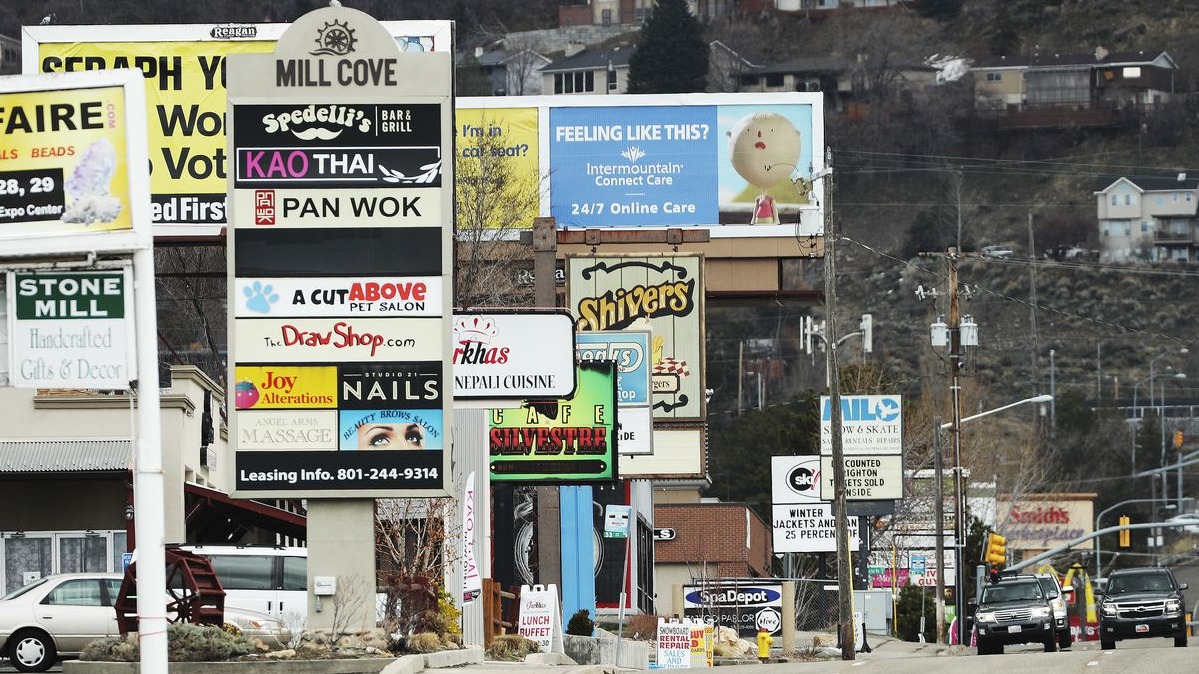Billboard companies' highly influential lobbying over many years has resulted in unfair and unwarranted taxpayer subsidies and concessions – all at the expense of towns, cities, counties, private property owners and real estate developers.
Local governments get no measurable tax revenue from billboards.
State law classifies billboards as personal property (such as jewelry, cars, and boats), rather than real property (such as homes and buildings). As personal property, billboard values are self-reported by their owners, and in fewer than 20 years a sign’s taxable value is amortized to zero.
This means billboard companies report low – and for many billboards – no values for their billboards at tax time.
But purchase values are disproportionately higher than tax values.
Once billboards are amortized, they are evaluated at a fraction of their construction cost and business value – for tax purposes. Yet, when a property owner, real estate developer or government entity needs to remove a billboard, the sign is treated more like real property, allowing a billboard company to demand a purchase price that is astronomically higher than the taxable value it reported.
When a government is able and willing to pay the inflated price, taxpayers are stuck with the bill.
To remove one, Utah law requires us to pay for more.
Even if a property owner, real estate developer or government only needs to purchase a single billboard (for a redevelopment project or to widen a road, for example), state law allows the billboard company to be compensated for an entire “package” (or bundle) of signs. If one billboard in that package needs to be moved, the property owner or government must pay as if it were taking the entire package. Package values are vague and defined by the billboard company.
There is no requirement to demonstrate market value of a package, nor any limit on the number of billboards that constitute a package.
Billboards often make more expensive, deter, or even prevent, land development.
Many Utah properties are zoned for greater development potential that would maximize the use and value of the land. But because billboard companies control use of the underlying property through lease agreements or easements, they can prevent any economic development that may adversely affect the visibility of their signs.
Any attempt by property owners, real estate developers or governments to remove a billboard to accommodate redevelopment (and realize the tax value) triggers the inflated sales price.
Unlike most other landowners, billboard companies commonly ignore local zoning ordinances due to state laws allowing them to do so.
State statutes allow existing billboards to be moved within one mile of their original location—for any reason. If local zoning ordinances prohibit billboards at the new location, state law requires that the government entity purchase the billboard at an inflated price.
Since most local governments cannot pay the price, they’re forced to allow billboards to be reconstructed or moved, regardless of zoning laws or the public interest.
Taxpayers are subsidizing the outdoor advertising industry.
Allowing billboards to be moved for any reason puts taxpayers on the hook for the private business decisions of billboard companies. For example, a billboard owner may cite loss of lease, or simply a desire for a better location, as reason for a move request—neither of which involve the public interest or would be initiated by a government entity. If the government denies the move request, its only option is to purchase the billboard at an inflated rate with taxpayers’ money in a narrow window of time.
No other business is granted the “privilege” of moving location for business reasons, and demanding taxpayer compensation if their preferred location is not an option.






